Windowrie – The Natural wine Co
About Windowrie
The Family
David and Wizz O’Dea are the founders of Windowrie Estate. David O’Dea completed a degree in Agriculture at Hawkesbury University in 1961. Wizz O’Dea began her life on a farm situated near the Hunter Valley and married David in 1964. Windowrie was purchased in 1959 and David and Wizz worked together in the production of various cereal crops.
The decision to diversify into grape growing in the 1980’s dramatically changed the family’s fortunes. From humble beginnings Windowrie Estate now boasts the region’s first winery and employs up to 45 people in casual labour and 14 people in full time labour.
Stephen (Steph) O’Dea completed a Bachelor of Building Degree at Canberra University and has put his skills to good use, reconstructing The Mill in Cowra to operate as a retail outlet for Windowrie wine. Work on The Mill began in February 1996 and the Cellar Door opened in October of the same year.
Steph is currently living and working in Shanghai, China with his wife Katie.
Dimity (Doe) O’Dea completed Wine Marketing at Roseworthy University in Adelaide. Doe spent part of her course living in Amsterdam, where she studied the Dutch wine market. Through Doe’s extensive world travel, she has gained an invaluable global perspective on world wine markets.
Doe now spends her time between Australia and Amsterdam with her husband and two boys.
Jason O’Dea completed Viticulture at Charles Sturt University in Wagga Wagga in New South Wales in 1994. In 1996 he travelled for 18 months on a global vineyard discovery tour, studying different viticultural practices in North America, South America and Europe. Since returning to Australia, Jason has applied this knowledge to the management of Windowrie’s vineyards while developing new ideas for further improvements to wine quality.
Petrina (Nook) O’Dea completed a communications degree at Charles Sturt University Bathurst in New South Wales in 2004. Nook has worked in digital media communications and spent much of her time travelling. She has now joined the team at Windowrie and is working with the company’s communications and marketing division.
The Vineyard
The gently undulating slopes of the Windowrie vineyard allow for excellent air drainage. To maximise light interception, vine rows are planted north to south and various types of canopy management are used including Scott Henry and Smart Dyson. These systems also aid in the control of vigour and ensure the fruit flavour characteristics of the Windowrie wines.
Supplementary irrigation is supplied via a drip system from an underground aquifer. Various methods of irrigation are employed such as Restricted Deficit Irrigation and Partial Root Zone Drying.
Windowrie Estate practises minimal intervention – no insecticides are used – and this ensures that natural predators flourish. Windowrie also manage an accredited organic vineyard and offer advice and management to vineyards in the region.
Grape varieties are planted according to which soil type irrigation method and canopy management are required for maximum quality and varietal fruit flavour. Windowrie Estate believes that the combination of the natural soil, climate, topography and water and careful management practices allow the growth of clean, fresh, full flavoured grapes.
Windowrie are dedicated to experimentation in the vineyard. This included the planting of several noncore varietals in order to learn which varieties are best suited to the relatively young region. Windowrie has the following varieties planted on the vineyard: Chardonnay, Verdelho, Sauvignon Blanc, Semillon, Cabernet, Shiraz, Merlot, Petit Verdot, Tempranillo, Cabernet Franc and Sangiovese.
While the region has put its name on the map through its excellent Chardonnay it is the red varietals and Verdelho that Windowrie are most excited about in the future.
Jason O’Dea explains “Our first plantings of Cabernet, Shiraz and Merlot are now nearly twenty years old and we are definitely seeing the quality of the fruit improve as the vines age. The yields are of course low however the quality is going ahead in leaps and bounds.”


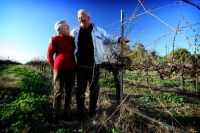
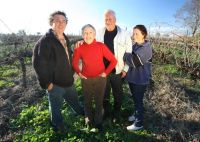
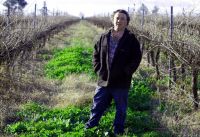
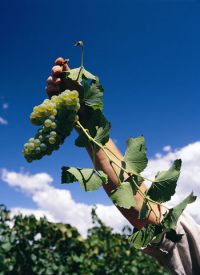
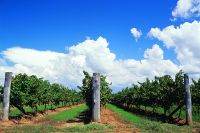
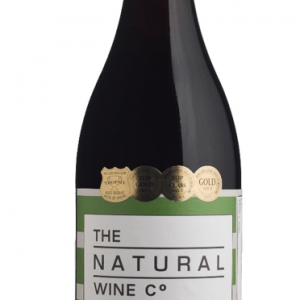
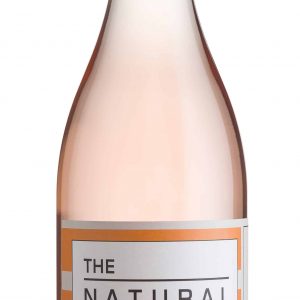
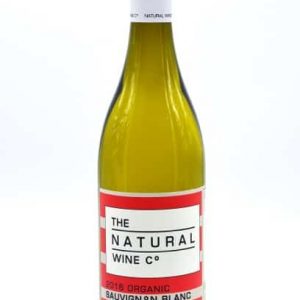
Sorry, the comment form is closed at this time.